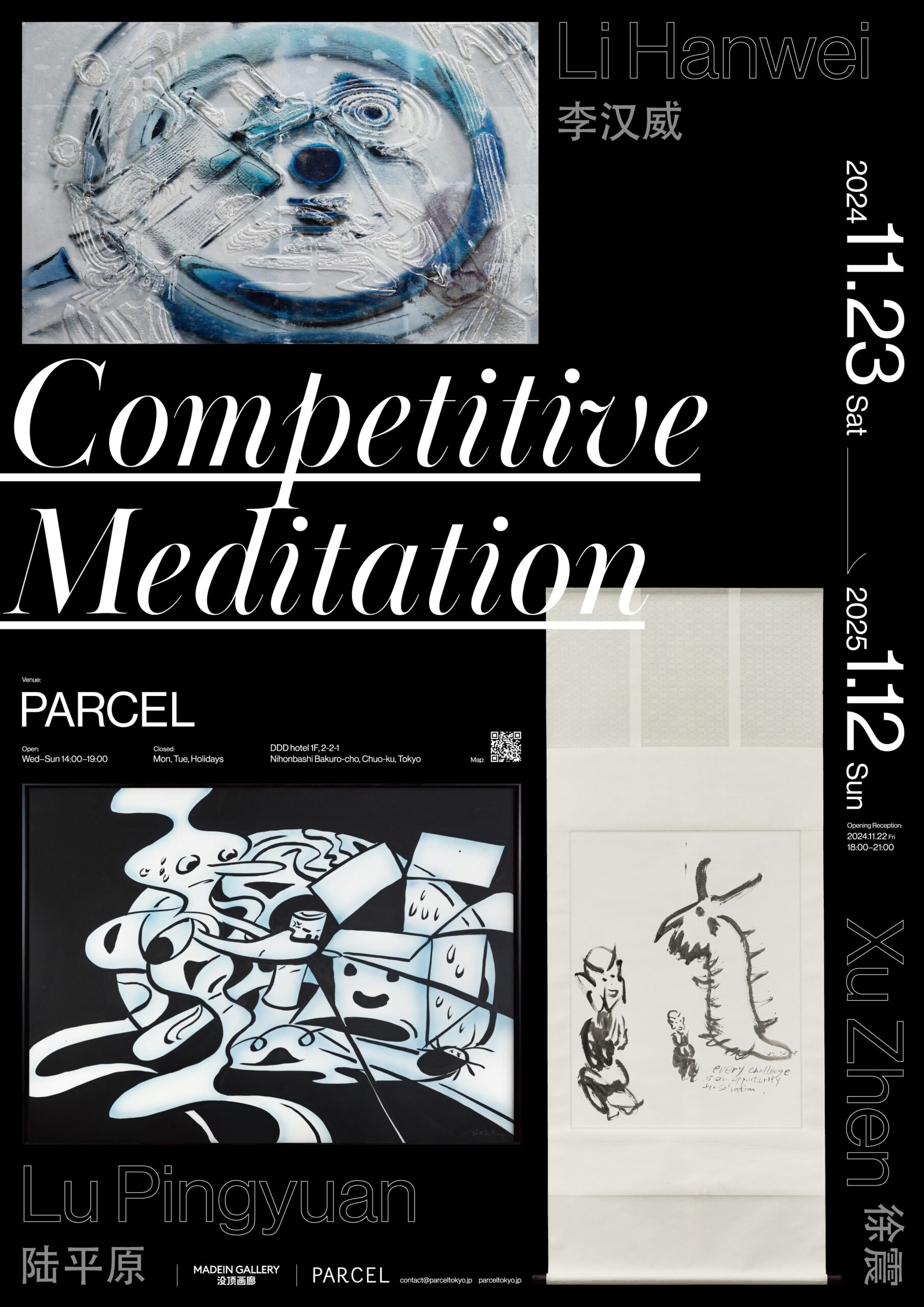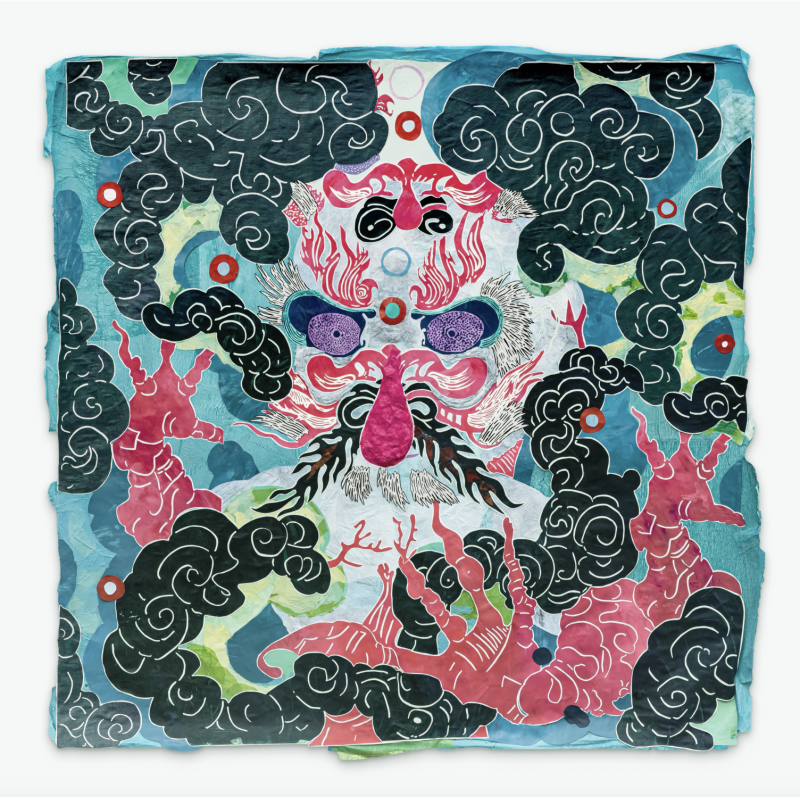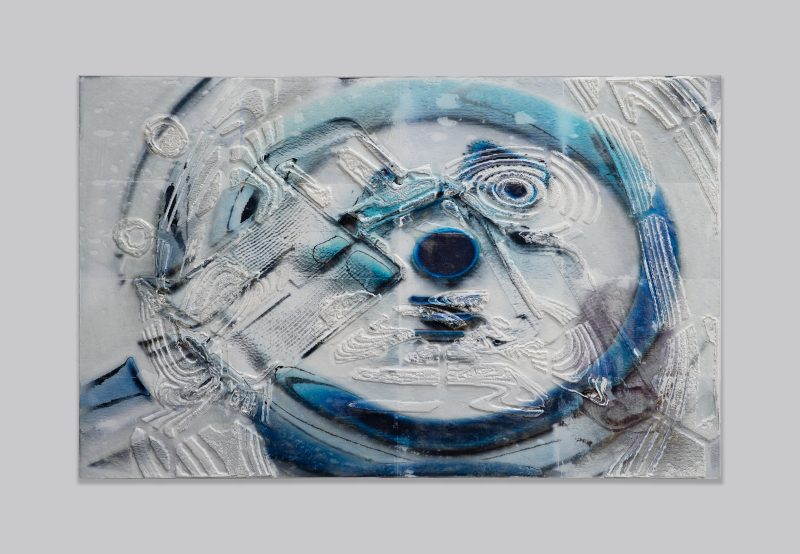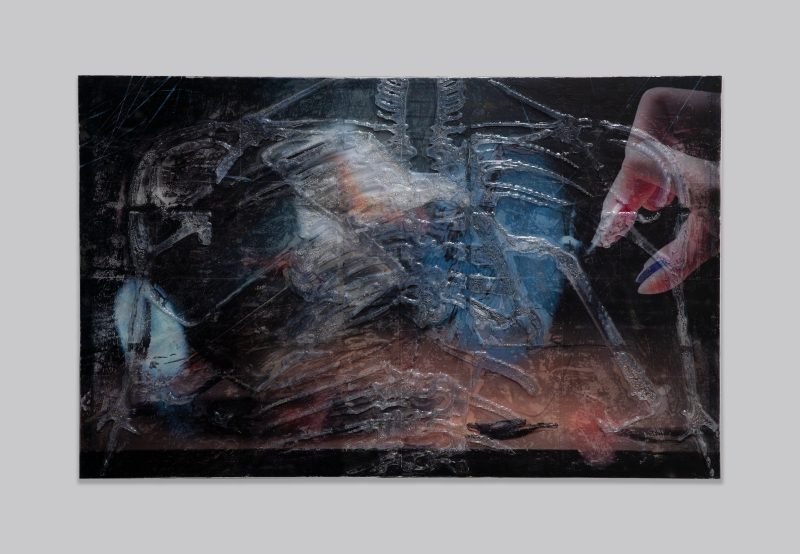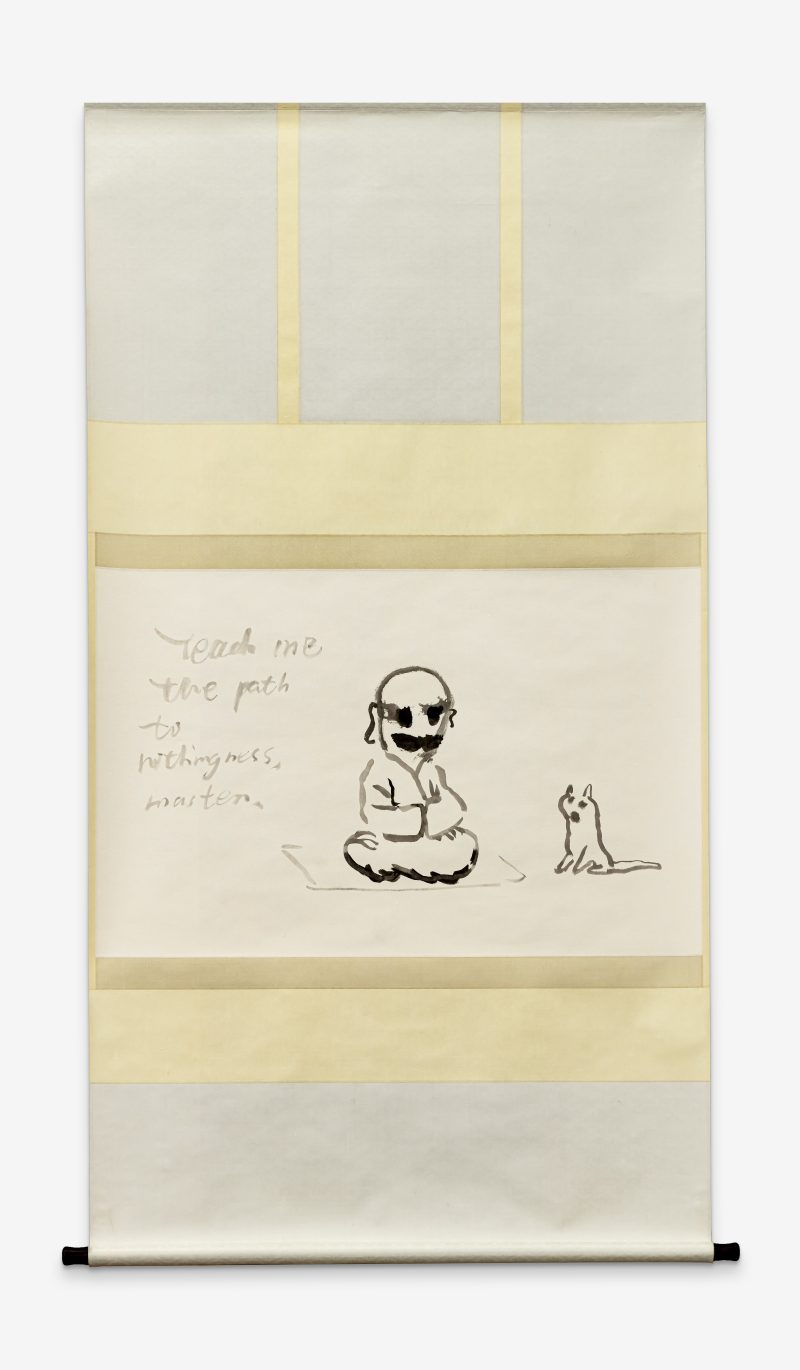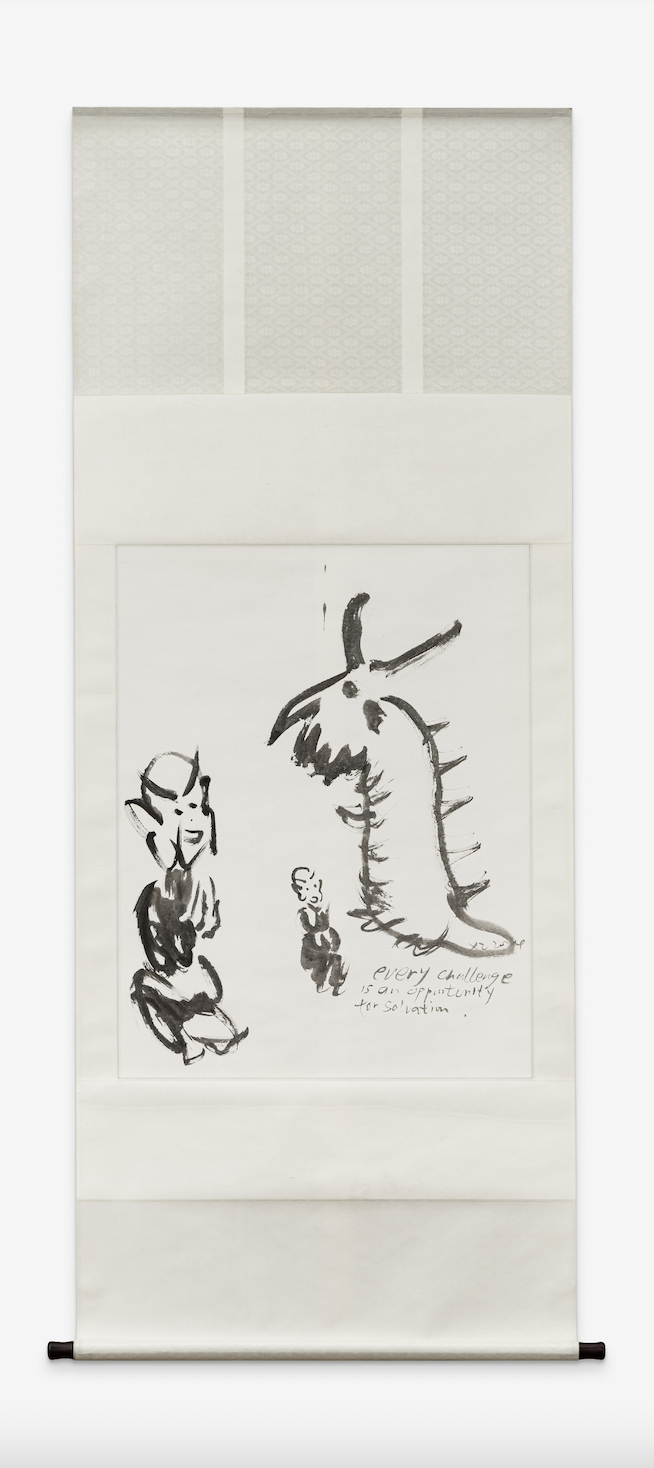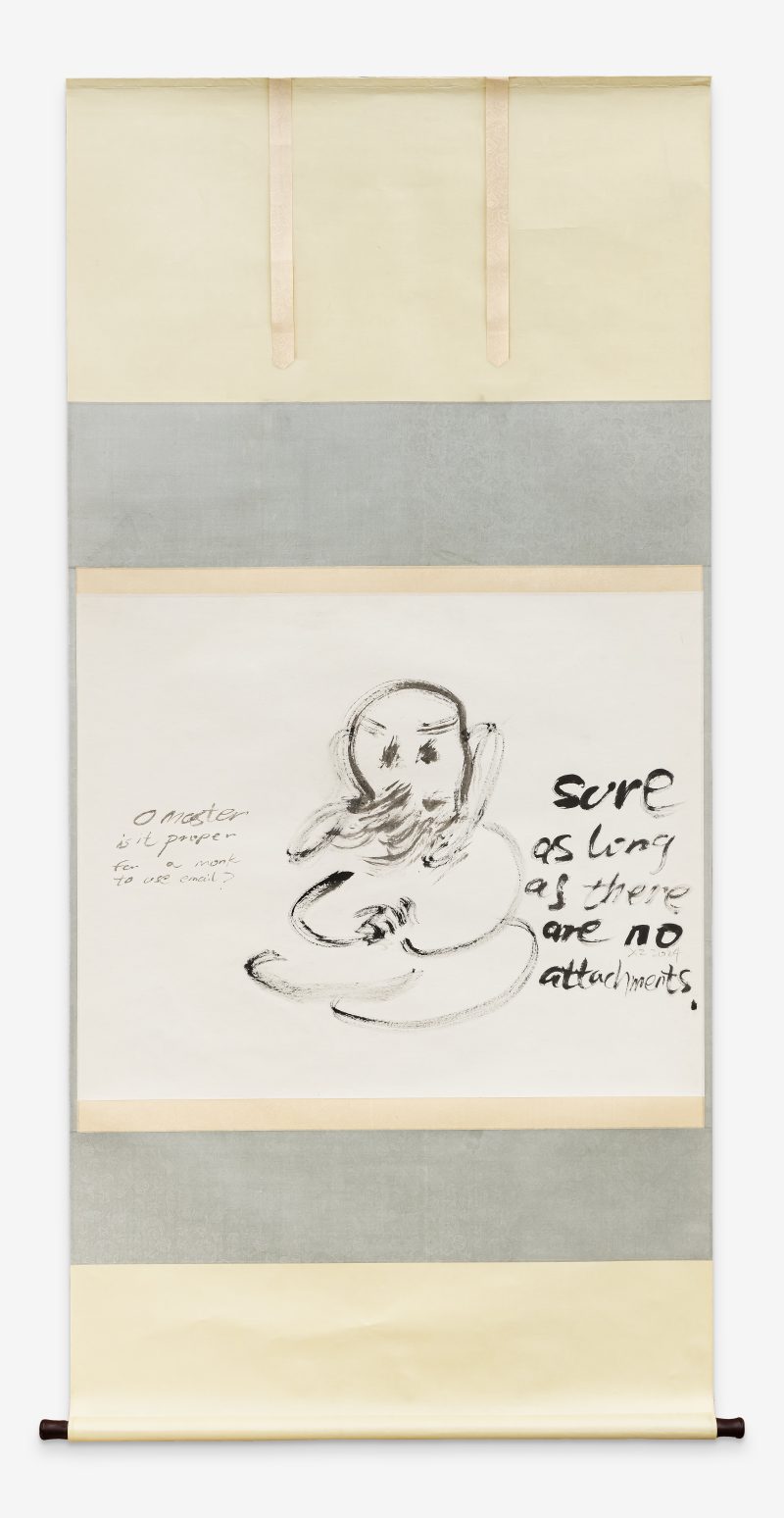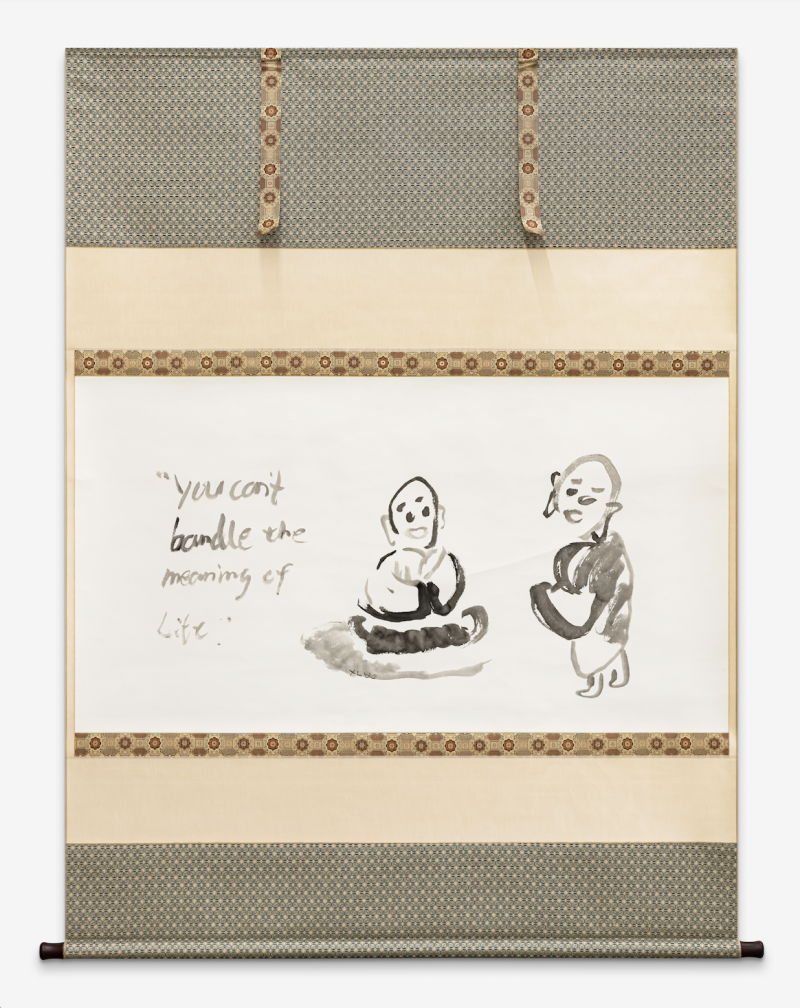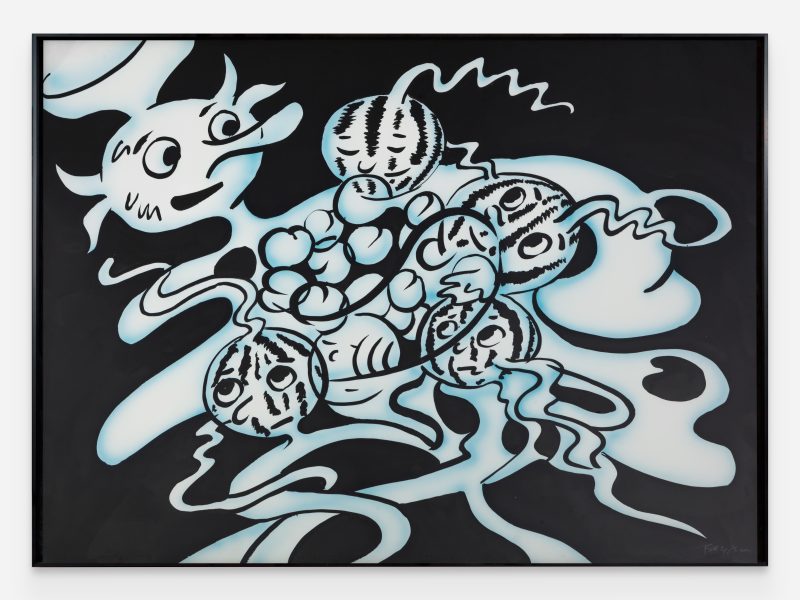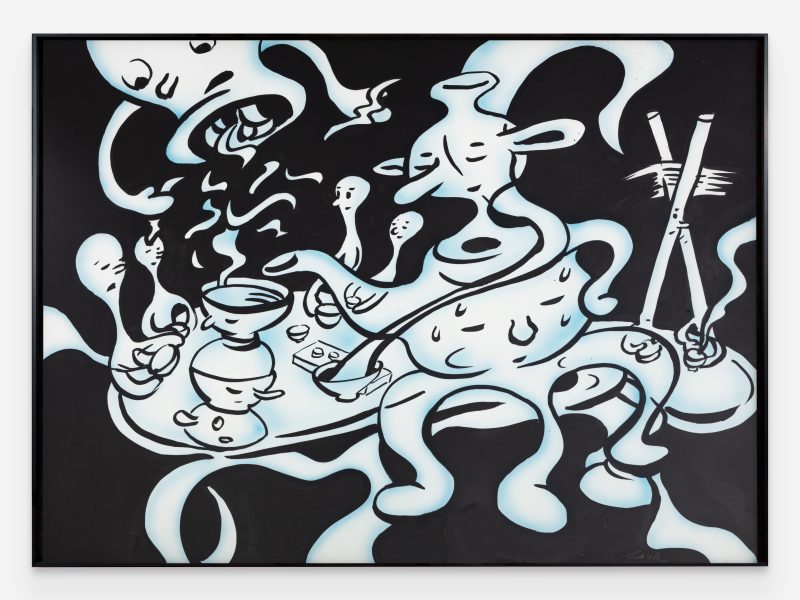Competitive Meditation
2024.11.23 —2024.01.12
- Location:PARCEL│DDD hotel 1F, 2-2-1 Nihonbashi-Bakurocho, Chuo-ku, Tokyo
- Artist:
We are pleased to announce that PARCEL will host a group exhibition featuring one of the most popular Chinese artists, Xu Zhen. Lu Pingyuan and Li Hanwei will also be featured, both represented by MadeIn Gallery, a gallery under Xu Zhen’s leadership.
MadeIn Gallery was established in 2014, under Xuʼs ambitious philosophy of “always looking into the no-limit possibilities in art and culture.” The gallery has become a significant part of international stages, also showing at Art Basel and Frieze Los Angeles recently.
“Competitive Meditation” is a phrase that appeared in Xu Zhen’s latest series of Zen Paintings. In his solo exhibition, recently held at Jebum-gang Art Center, Tibetʼs first contemporary art institution, Xuʼs work culminated in a series of pieces drawing upon the traditions of Japanese Zen painting, layered with political cartoons. Originating in the late Song-Yuan period and evolving significantly within Japanese culture, Zen painting later turned into more dynamic forms, such as manga and animation nowadays. Xuʼs practice encapsulates this complex cultural lineage, distilling it into seemingly simple yet profound “enlightenment.” Through this concept, the artist does not intend to evoke a grand significance beyond art itself but rather aims to make us aware of the fundamental presence that is always part of our lives. By stripping his work of overt mythological weight, Xu maintains a dispassionate, middle-ground stance, even suggesting a willingness to become the subject of critique rather than simply acting as the critic.
Currently (as of November 2024), Lu Pingyuan is also participating in a group show at the Centre Pompidou. Since 2012, Lu has been building a body of work that operates at the intersection of fiction and reality. In his “Best of the Best Draw” series, Lu approaches artificial intelligence as a new ideological construct, casting AI as a “god” to whom he presents his own narratives and traditional mythologies, prompting the generation of new mythic figures. By employing traditional Chinese paper-cutting techniques̶historically used to invoke deities̶he materializes these “gods” from the paper again. In engaging with the long-standing practice of depicting divine figures, Lu critiques yet simultaneously reclaims this “futile but essential” human act. His “Lingua Playful” series offers a visualization of human language, treating it as a living organism. Employing the traditional Chinese ink painting technique of “leaving space,” Lu not only represents dialogue but also the vast, unspoken territories that lie beyond languageʼs reach.
Li Hanweiʼs work, by contrast, examines how emerging technologies intervene in and increasingly dictate our perception, modes of communication, and construction of identity. In his new works from the “Witness” series, first on display at PARCEL, Li employs cutting-edge information processing technologies, including AI mapping, fingerprint recognition, CG rendering, and 3D printing. These works investigate the increasingly indistinct boundary between human and machine. Despite the apparent freedoms these technologies seem to offer, they are, in fact, subject to numerous “inevitable constraints”̶a condition Li deftly parallels with the highly mediated nature of our everyday environments. Liʼs work always shows viewers to reflect on how these limitations permeate even the most ostensibly liberating technologies.
This exhibition will mark the first public showing of Xu Zhenʼs latest works in Japan, along with all the other featured pieces. In an age when painting/drawing is confronted by the ever-evolving media that challenges its original validation, this exhibition explores the thematic tension between certainty and ambiguity across various mediums, from ink painting and paper-cutting to Zen painting, and both 2D and 3D digital prints.
Over 60 years ago, D.T. Suzuki wrote, “In the mechanistic worldview, an industrialized society, and a conceptualist-driven realm of thought, the creative instincts of humanity are stifled. Should we continue on this path, I believe we will inexorably be driven toward the tragic fate of mutual annihilation.”
In our contemporary moment, we are not confronted by a single overwhelming crisis but by a multitude of diffuse, dispersed problems. Artists and their works are continually asked to provide solutions, all while we risk forgetting that art, first and foremost, must preserve its autonomy and self-awareness. This exhibition challenges us to reconsider the concept of “Competitive Meditation,” offering an opportunity to reflect on both the artworks and ourselves within this context.
–Curator, Jin Qiuyu
